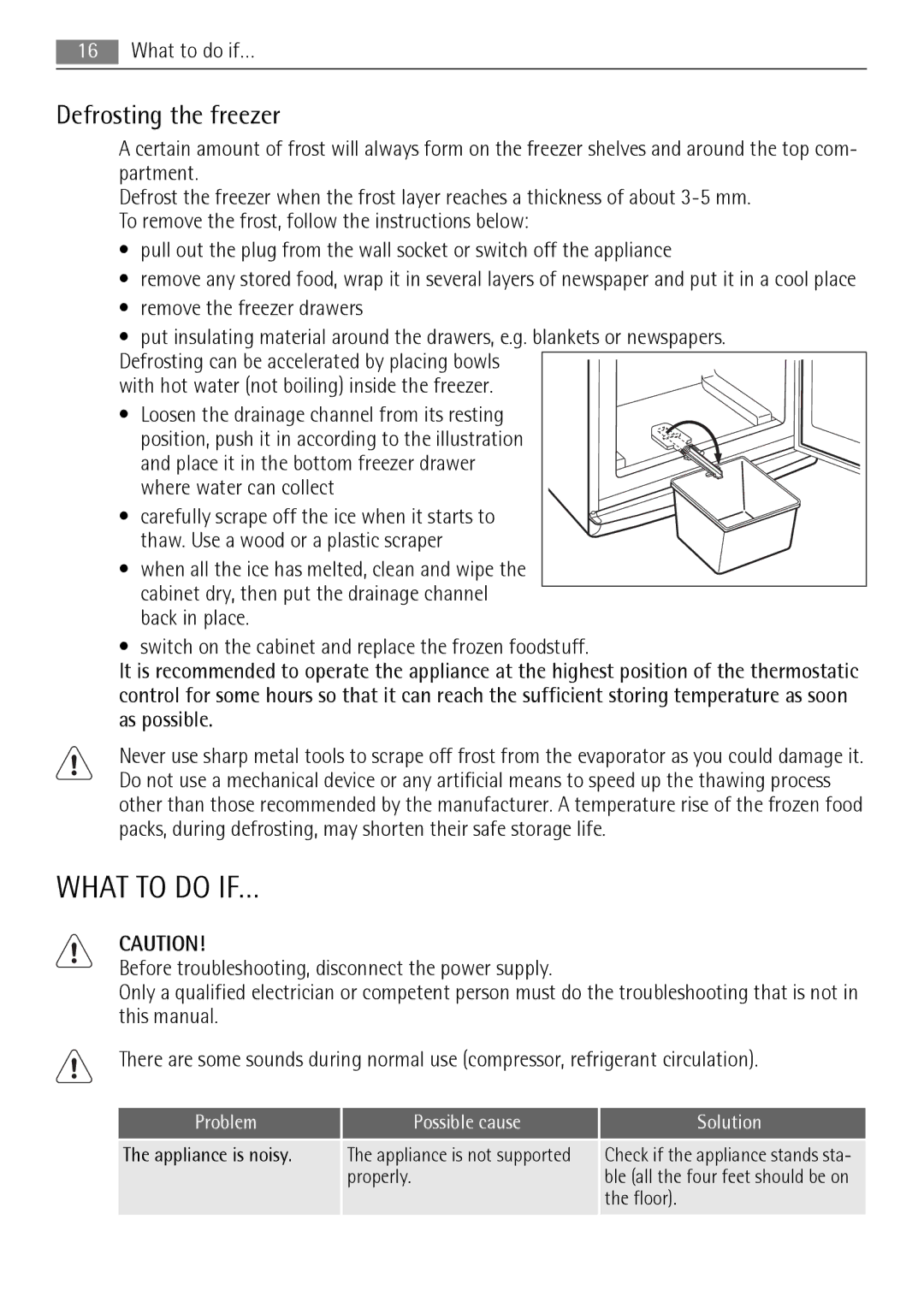
16What to do if…
Defrosting the freezer
A certain amount of frost will always form on the freezer shelves and around the top com- partment.
Defrost the freezer when the frost layer reaches a thickness of about
•pull out the plug from the wall socket or switch off the appliance
•remove any stored food, wrap it in several layers of newspaper and put it in a cool place
•remove the freezer drawers
•put insulating material around the drawers, e.g. blankets or newspapers.
Defrosting can be accelerated by placing bowls with hot water (not boiling) inside the freezer.
• Loosen the drainage channel from its resting position, push it in according to the illustration and place it in the bottom freezer drawer where water can collect
• carefully scrape off the ice when it starts to thaw. Use a wood or a plastic scraper
•when all the ice has melted, clean and wipe the cabinet dry, then put the drainage channel back in place.
•switch on the cabinet and replace the frozen foodstuff.
It is recommended to operate the appliance at the highest position of the thermostatic control for some hours so that it can reach the sufficient storing temperature as soon as possible.
Never use sharp metal tools to scrape off frost from the evaporator as you could damage it. Do not use a mechanical device or any artificial means to speed up the thawing process other than those recommended by the manufacturer. A temperature rise of the frozen food packs, during defrosting, may shorten their safe storage life.
WHAT TO DO IF…
CAUTION!
Before troubleshooting, disconnect the power supply.
Only a qualified electrician or competent person must do the troubleshooting that is not in this manual.
There are some sounds during normal use (compressor, refrigerant circulation).
Problem |
| Possible cause |
| Solution |
|
|
|
|
|
The appliance is noisy. |
| The appliance is not supported |
| Check if the appliance stands sta- |
|
| properly. |
| ble (all the four feet should be on |
|
|
|
| the floor). |
|
|
|
|
|
